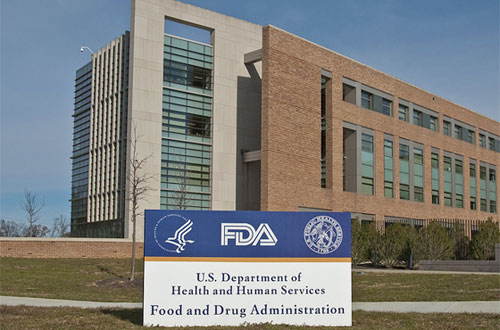
The US FDA approved a trio of new drugs ahead of the Easter holidays, namely Teva’s Cinqair for asthma, Eli Lilly’s psoriasis drug Taltz and an anthrax therapy from Elusys.
Cinqair (reslizumab) – a humanised interleukin-5 blocker – got a green light for use in combination with other medicines for the maintenance treatment of severe asthma in adults.
Cinqair is the second IL-5 inhibitor to be approved for marketing after GlaxoSmithKline’s Nucala (mepolizumab), which is already available in the US and its first EU markets including Germany. The FDA is the first regulatory authority to complete a review of Teva’s drug.
Badrul Chowdhury, director of the FDA’s Pulmonary, Allergy, and Rheumatology Products division, said that Cinqair is “another treatment option to consider when the disease is not well controlled by their current asthma therapies”.
Teva said it plans to launch Cinqair in the second quarter with a “personalised support training and education” programme for patients and their doctors, adding that the drug is also under review by the EMA in Europe. The drug is spearheading a push by Teva into the branded respiratory therapy category and is expected to face stiff competition from GSK, which is a heavyweight in the asthma treatment market.
Moreover, Cinqair is given as an intravenous injection while Nucala is available in a subcutaneous formulation, which could hand a clinical advantage to GSK’s drug. Teva is working on a subcutaneous version of its drug, but this is still in phase III testing and may not be ready for marketing for a couple of years.
Lilly’s interleukin-17 inhibitor Taltz (ixekizumab) is also a second-placed drug, getting the FDA’s blessing 14 months after Novartis’ first-in-class Cosentyx (secukinumab), which has also been approved in Japan and the EU.
Taltz has been approved to treat adults with moderate-to-severe plaque psoriasis on the back of placebo-controlled trials that showed the drug was effective in clearing the characteristic skin lesions in the disease.
While the clinical data for the drug is robust and seems at least comparable to Cosentyx, Lily will face an uphill struggle clawing market share from Novartis’ drug, which has now been approved for three indications – psoriasis, psoriatic arthritis and ankylosing spondylitis – and has got off to a flyer in the market.
Novartis recorded sales of $261m in 2015, with $121m of that total coming in the last three months of the year.
Meanwhile, both Taltz and Cosentyx could face near-term competition from a third anti-IL-17 entrant – Valeant’s brodalumab – that was originally developed by AstraZeneca and Amgen and has also been submitted for approval to the FDA.
Finally, the FDA has also approved Elusys’ Anthim (obiltoxaximab), an injectable treatment for anthrax infections caused by breathing in the bacterium Bacillus anthracis. Anthim is cleared for use as a treatment in combination with appropriate antibacterial drugs, as well as for the prevention of inhalational anthrax when alternative therapies are not available or not appropriate.
In 2012, GSK was given FDA approval for the use of raxibacumab in inhalational anthrax where alternative therapies are not available or not appropriate.




